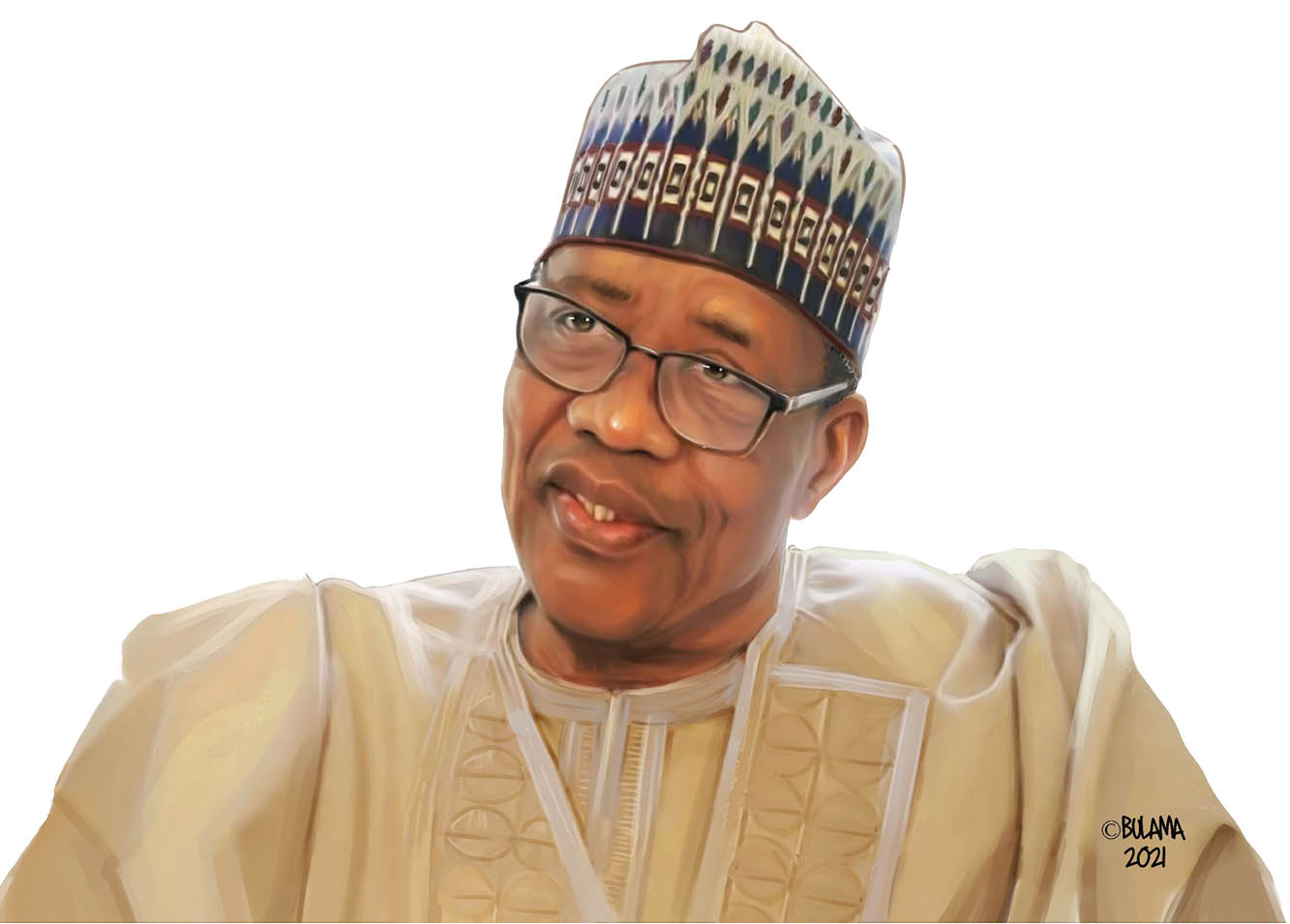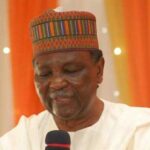Danladi Ndayebo
It is yet another season to celebrate General Ibrahim Badamasi Babangida, a Soldiers’ Soldier, a sterling political strategist, a committed nationalist and an inscrutable statesman who turns 80 on Tuesday (August 17, 2021).
The self-styled Military President of Nigeria (August 27, 1985 to August 27 1993), who is fondly called IBB or Maradona (of Nigeria’s politics) by his crop of ardent admirers, is unarguably one of Nigeria’s best gifts to the world.
- ActionAid trains youths on agricultural innovation
- VSF supports 700 B/Haram victims with farm inputs
In a country where life expectancy is 60 years, attaining the biblical four scores is a milestone often celebrated with splendid display, but this important day in the life of IBB may not be celebrated with ceremonial splendour this year because of the circumstances of the times – First, Nigeria is at war, and again, gatherings of more than 50 people are prohibited because of the COVID-19 Pandemic.
Nonetheless, the season provides an opportunity to reflect on the life of service that IBB has led and why he is not likely to be ignored in any honest attempt to understand the great economic and political challenges which have plagued Nigeria since independence, and why the journey to Nigeria’s greatness must necessarily take its bearing from the Babangida years.
Babangida’s imprint on the nation’s landscape in the last five decades has been unmistakable. He was brought to national prominence by his courageous role in neutralizing the Dimka coup attempt of 1976 in which the then Head of State, General Murtala Muhammed, was killed. From then on, he assumed a larger-than-life image which stood to his benefit when in August 1985 he ousted his boss, Major General Muhammadu Buhari in a palace coup.
In the intervening years, he had held various command positions in the army, including Commander of the Armoured Corps, in addition to being a veteran of the Nigerian Civil War and was the Chief of Army Staff when he seized power from General Buhari.
Buhari took over the reins of power on December 31st 1983, following a coup d’état which terminated the civilian administration of Alhaji Shehu Shagari but draconian decrees soon made his government unpopular. In a number of instances, the Buhari regime was zealous, iron-fisted and uneven handed. Hundreds of politicians were thrown into detention, while a number of brash military tribunals on recovery of public property imposed varying jail sentences on those that were convicted.
It was under this state of affairs that Babangida struck. Suffice to say that unlike many of his colleagues in the military, Babangida commanded tremendous followership in the armed forces and had built a crop of loyal officers, described as “IBB Boys” by the mainstream media.
Stepping into the saddle, IBB began to stamp his distinctive leadership style on the nation’s landscape with his peculiar method of governance, his political philosophy and way with power that made him the central issue in the eight years that he held sway as Nigeria’s helmsman. He started off by warming himself into the heart of the nation’s media establishment by the abrogation of Decree 4 of 1984, an edict that’s considered to be the most repressive press law ever. He also released political detainees and pledged respect for human rights.
Then came the reforms which shook most of the long-held views and beliefs about politics, economics and society in general. He set out to change, almost overnight, some of the set assumptions of Nigerian life, for good, and hardly for ill: subsidized existence, mixed economy, excessive regulation of key sectors of the economy, etc. Almost everything was changing overnight. And yet constant at the centre of it all was one man – calm, unmoved in the face of apparent feeling of unease by the populace.
A laissez-faire attitude to the running of the economy was for him an article of faith. He pursued it with single-minded determination in the belief that government has no business in business. Babangida believed that the inefficiency of and the corruption in most Third World public sectors, including Nigeria’s, is such that no development can possibly take place without deregulating it to a great extent and making the private sector to take over its role of being the engine of development.
However, IBB’s IMF-type Structural Adjustment Programme which seeks to impose completely unregulated market forces on Third World countries attracted a hostile reaction culminating into the SAP riots of 1989 which provided an excuse for the bloody coup attempt of 1990. He had declared a 15-month economic emergency to coincide with the IMF debate. Before then, he had announced an economic emergency programme which was a precursor to “tough economic measures” as enunciated in his 1986 budget but Nigerians rebuffed the measures all the same because Nigerians were not prepared for the pains that SAP was bound to inflict on them.
It is significant that the battle to wean the Nigerian psyche away from dependence on subsidies on petroleum and other essential commodities did not start with the Buhari administration. It was perhaps the most arduous of the battles which Babangida had to wage.
In eight years of the most eventful administration in the country, the IBB administration left legacies that are difficult to ignore. An instant revelation is the realization of the vision of Abuja as the Federal Capital City. IBB it was who provided the most vital infrastructure and moved the seat of power from Lagos in 1991.
The privatization of the broadcast industry, the licensing of private universities and airlines, the liberalization of the banking industry, including the establishment of Peoples Bank (now microfinance institutions) rank among his notable legacies.
It is to his credit that the nation now enjoys the benefit of key agencies of government that have proved useful in everyday life of Nigerians: The National Population Commission, Nigerian Deposit Insurance Corporation; Federal Road Safety Corps, National Primary Health Care Development Agency; National Orientation Agency and National Planning Commission and several others too numerous to mention were all created under the Babangida dispensation.
The success of the Babangida presidency can be attributed to the choice of his ministers and Heads of government agencies. As Military President, Babangida had an eye for talent, and was able and willing to hire gifted individuals into the government. He refused to be a provincial prefect. Fired by an informed appreciation of the nation’s diversity and propelled by the knowledge that any administration is only as good as those who work for it, he assembled a handful of individuals of solid professional and academic credentials from all parts of the country. At different times, he had men like Prof. Bolaji Akinyemi, Dr. Kalu I. Kalu, Prof. Jibril Aminu, Prof. Olikoye Ransome Kuti, Dr. Chu Okongwu, Prof. Babs Fafunwa and Prince Tony Momoh to name only a few. This core group of renowned intellectuals and professionals were responsible for the successes recorded by the IBB administration.
It is without doubt that the Babangida years will go down as a period of our nation’s history in which one man courageously stepped forward to fill the void of a compelling vision and clear-cut strategy for nation building. Little wonder that Babangida’s greatest legacy is in the articulation and rigorous pursuit of big dreams for Nigeria, which have been adopted lock, stock and barrel by all the administrations which came after him.
To borrow the thoughts of IBB’s biographer, Mr. Dan Agbese: Nigerian history may have at last found a pillar post for time measurement. The years up to 1985 may now be suffixed with (BB) -Before Babangida. And the years after 1992 may be (AB) – After Babangida.
Babangida’s political programme which promised so much but ended in the repugnant annulment of the June 12, 1993 presidential election is perhaps his single “crime” against Nigerians but whatever is the case, IBB is entitled to his mistakes just as he deserves to be acknowledged as a vital force in the nation’s history.
In retirement, the gap-toothed general has remained Nigeria’s famous backseat driver who has had an impact on every transfer of power at the centre, and his blessing makes or breaks political careers.
As he turns 80 years of age on Tuesday, here is a birthday wish to a tested and trusted leader, an outstanding statesman, a true patriot, and the nation’s Delphic Oracle!
Ndayebo is a former Commissioner of Information in Niger State

 Join Daily Trust WhatsApp Community For Quick Access To News and Happenings Around You.
Join Daily Trust WhatsApp Community For Quick Access To News and Happenings Around You.


